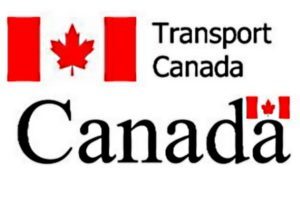
Transport Canada, the nation’s counterpart to the FAA, made a ruling last week prohibiting drones from the airspace above the Fort McMurray urban service area according to the Regional Municipality of Wood Buffalo. An urban service area is a non-municipal area dedicated to providing Alberta with specialized services – in Fort McMurray’s case, the development of the national petroleum industry.
The ban includes both drones and model aircraft up to 1,000 feet. Transport Canada officials say the ban is necessary to “prevent interference between the UAVs and airplanes, and to prevent potential collisions during the re-entry and recovery period.”
Violators of the order could face fines up to $25,000 and prison time under the Aeronautics Act and the Criminal Code.
Transport Canada has already made several headlines in the drone sector as it faces the same challenges and questions as other national air-safety agencies.
On Monday, the agency announced a new national drone education program – a campaign many say foreshadows Canada’s plan to enact new drone laws. Transport Canada will distribute “No Drone Zone” signage to airports and other facilities, hoping that other facilities — parks, municipalities and event organizers will post the signs around the perimeter of their property or event, “when it is unsafe or illegal to fly drones.”
Some government agencies receive special certification from Transport Canada. The Royal Canadian Mounted Police has been using rescue drones since 2010 – one of a handful of operators with a special certificate from agency to fly.
Transport Canada Facts
Transport Canada regulates the use of all aircraft, manned and unmanned, to keep the public and our airspace safe.
Canada has had safety regulations in place that govern the use of UAVs since 1996.
Operators must still apply for a Special Flight Operations Certificate for UAVs weighing more than 25 kg.
If a UAV is operated without a Special Flight Operations Certificate and should be, Transport Canada can issue fines of up to $5,000 for an individual and $25,000 for a company.
If an operator does not follow the requirements of their Special Flight Operations Certificate, Transport Canada can issue fines of up to $3,000 for an individual and $15,000 for a business.
Jason is a longstanding contributor to DroneLife with an avid interest in all things tech. He focuses on anti-drone technologies and the public safety sector; police, fire, and search and rescue.
Beginning his career as a journalist in 1996, Jason has since written and edited thousands of engaging news articles, blog posts, press releases and online content.
Email Jason
TWITTER:@JasonPReagan
Subscribe to DroneLife here.